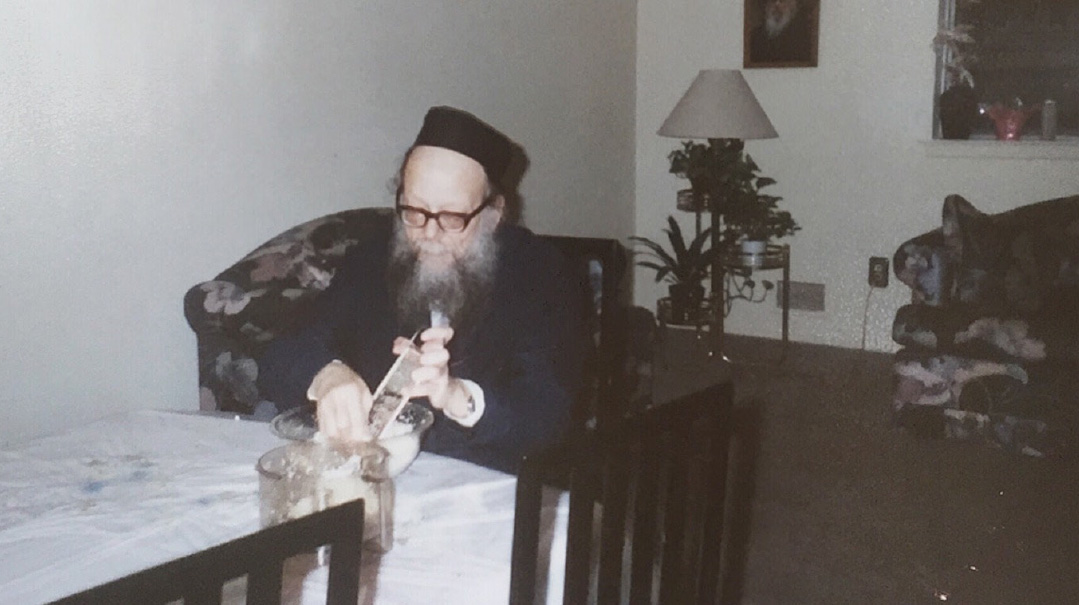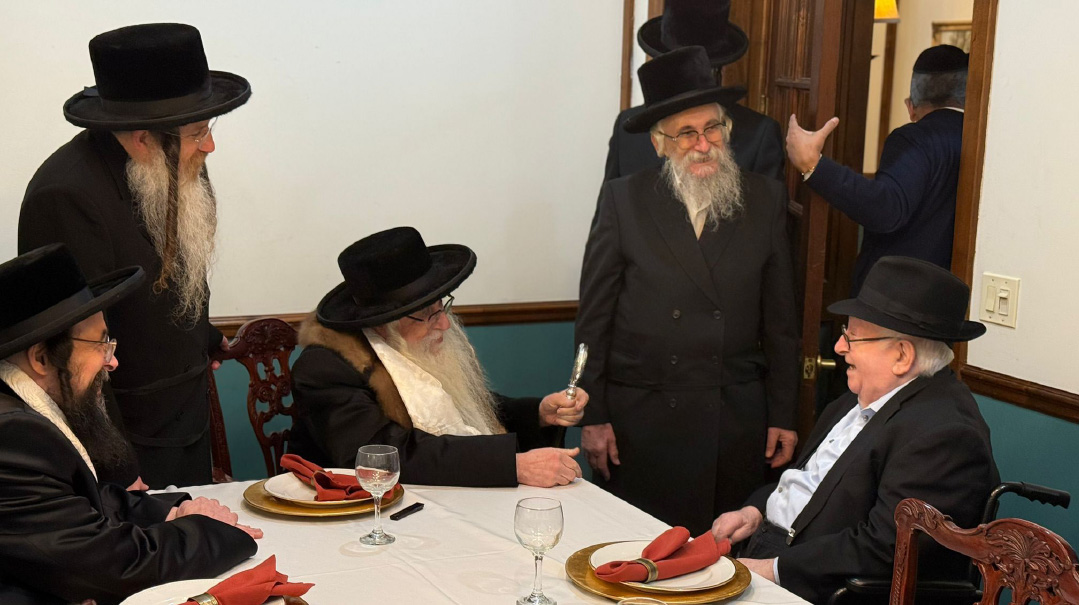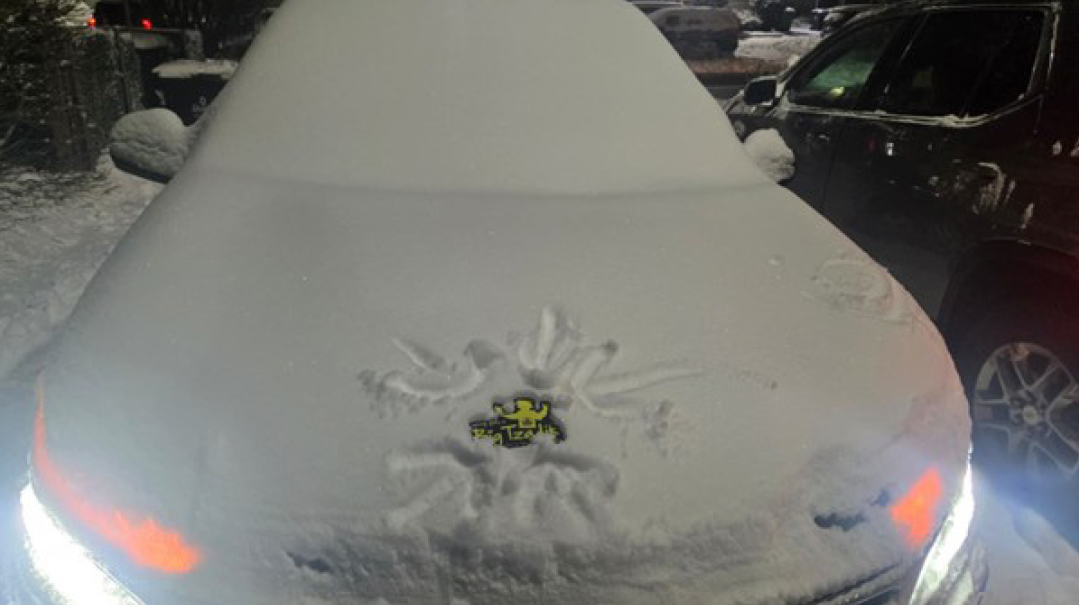The Moment: Issue 1008
| April 16, 2024“We have to ‘fly low’ in order to avoid the yetzer hara’s radar”

Living Higher
T
he above photo depicts Rav Shlomo Wolbe z”l, the legendary mashgiach of Be’er Yaakov, grating maror in the Monsey home of his son, Reb Avi shlita. It’s a picture that tells a story of greatness, humility, and deep, impassioned love for the mitzvos of Pesach. In fact, in a poignant postscript, Rav Wolbe’s yahrtzeit is the 17th of Nissan, the third day of Pesach. And while Pesach is the celebration of our leaving Mitzrayim, one of the many episodes in Rav Wolbe’s storied life involves going to Mitzrayim.
His grandson Rabbi Yaakov Wolbe, whose podcasts have brought thousands closer to Yiddishkeit, shares how kiruv was a foremost ambition of his grandfather’s.
“Saba believed it was feasible to bring multitudes of our brethren back to Torah and that we must do whatever we can to help facilitate that. In the aftermath of the undeniable miracles experienced in the Six Day War and the Yom Kippur War, he felt that secular Israeli society was receptive to messages of emunah.”
Never one to neglect an opportunity, the great Mashgiach left his home and traveled across the Suez Canal to share a message of encouragement with the troops stationed there. But for Rav Wolbe, the trip didn’t present a break from his lifetime pursuit of mussar.
“Saba would share that the airplane was flying very low, just a few meters from the ground. He asked the pilot why that was. Did the plane malfunction? The pilot responded that they needed to fly low in order to avoid Egyptian radar.”
Upon returning home, Rav Wolbe would reflect upon this response. “We assume that the path to growth is by doing great things: great acts of chesed; pushing to learn with great intensity for long, uninterrupted periods; making seismic changes in our life. But the baalei mussar cautioned us against this. We have to ‘fly low’ in order to avoid the yetzer hara’s radar. Striving to make giant leaps all at once will trigger a response from the yetzer hara, and we will get shot down by our enemy.” (Rav Wolbe records this idea in his sefer Alei Shur, Volume 2, page 190).
The humble picture of Rav Wolbe quietly grating maror tells of his fusion of greatness and humility, the fulfillment of a lesson learned on the way to Mitzrayim.
And as he readied himself to leave Mitzrayim, so can we.
Overheard
“People think milk is produced in the back of a supermarket, and pickles are grown on the shelf. We don’t realize how many millions of precise and perfect details have to fall into place in order for food to grow.
“When Hashem takes away one of those minor details, sending a whole production apparatus off kilter, it allows us to appreciate how much He is constantly providing us, and how grateful we have to be when everything does come out exactly as needed.”
—Mr. Grunhut, owner of Flaum Appetizing, reflecting on the lack of sour pickles available during this Pesach season. A minor drought in Mexico decimated an entire crop of cucumbers slated to be picked, barreled, and shipped to kosher supermarkets around the country. The company’s entire production line was on standby for two weeks as the farmers rushed to plant new crops, which Mr. Grunhut hopes will reach the kosher consumer immediately after Pesach.
Clothes Don’t Make the Man
Igud Bnei Torah is a Lakewood-based organization that provides subsidized clothing to kollel yungeleit before Yom Tov. To maintain the privacy of its clients and to allow for individualized attention, the Igud sets up appointments for the yungeleit to come with their families and get outfitted at significantly discounted prices. When the booking slots opened up, they were filled within an hour, but the 7:30 p.m. slot remained untaken. Organizers offered the slot to people on the waiting list, but no one was willing to take it.
At first, the organizers were surprised, but they soon realized what was happening. Getting to their headquarters at 7:30 would entail leaving second seder shortly before it officially ended — and no amount of money saved was worth those few minutes of limud HaTorah.
(Originally featured in Mishpacha, Issue 1008)
Oops! We could not locate your form.







